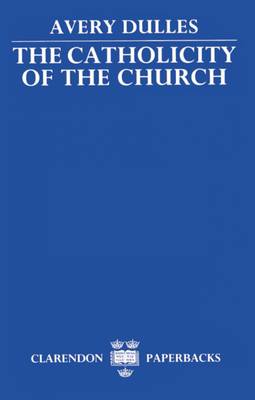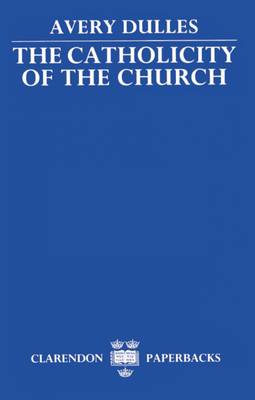
Je cadeautjes zeker op tijd in huis hebben voor de feestdagen? Kom langs in onze winkels en vind het perfecte geschenk!
- Afhalen na 1 uur in een winkel met voorraad
- Gratis thuislevering in België vanaf € 30
- Ruim aanbod met 7 miljoen producten
Je cadeautjes zeker op tijd in huis hebben voor de feestdagen? Kom langs in onze winkels en vind het perfecte geschenk!
- Afhalen na 1 uur in een winkel met voorraad
- Gratis thuislevering in België vanaf € 30
- Ruim aanbod met 7 miljoen producten
Zoeken
Omschrijving
Avery Dulles, well-known for several previous works in ecclesiology, including Models of the Church, here surveys a theme that demands new treatment in the present global and ecumenical context. Nearly all Christians profess allegiance to the holy catholic church, but the meaning of the term "catholic" is widely disputed. This book investigates the historical use of the word and the various aspects of catholicity. Beginning with the word's divine source in Christ as "the first-born of all creation," Dulles goes on to discuss such topics as the "catholic principle," Catholicism as a specific ecclesial type, and the possibility of a "Protestant Catholicism." He concludes by asking how, given the current "parochial" appearance of Christianity, any Christian church can plausibly claim to be catholic.
Specificaties
Betrokkenen
- Auteur(s):
- Uitgeverij:
Inhoud
- Aantal bladzijden:
- 208
- Taal:
- Engels
Eigenschappen
- Productcode (EAN):
- 9780198266952
- Verschijningsdatum:
- 3/12/1987
- Uitvoering:
- Paperback
- Formaat:
- Trade paperback (VS)
- Afmetingen:
- 160 mm x 204 mm
- Gewicht:
- 272 g

Alleen bij Standaard Boekhandel
+ 222 punten op je klantenkaart van Standaard Boekhandel
Beoordelingen
We publiceren alleen reviews die voldoen aan de voorwaarden voor reviews. Bekijk onze voorwaarden voor reviews.









